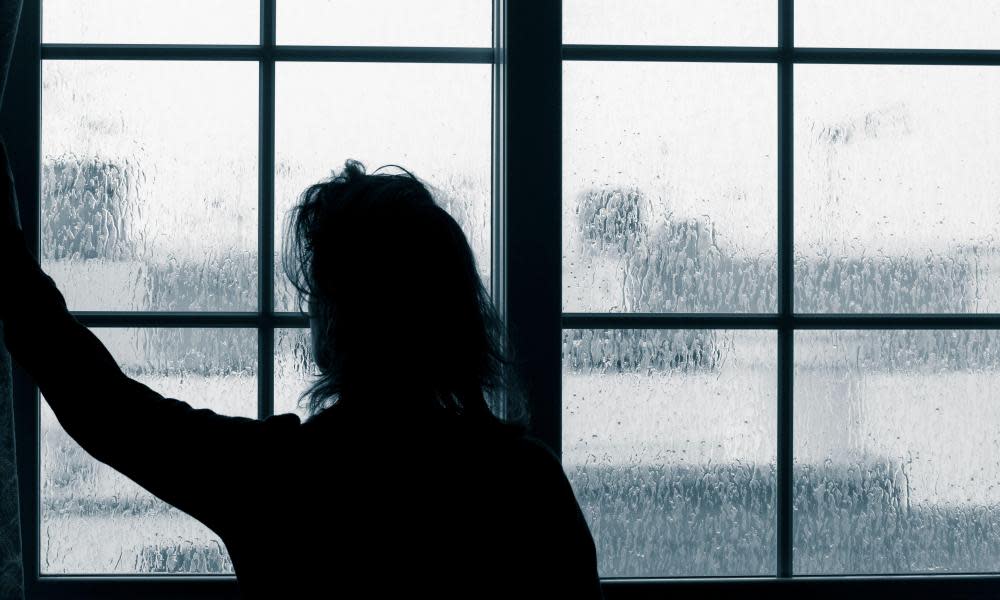Dominic Cummings surely knew he was exploiting a rule meant for abuse victims

During Dominic Cummings’ bolshy defence of his cross-country tour to Durham, breaking lockdown regulations, he centred on his “exceptional” need for childcare. This led him to drive 260 miles to his parents’ farm after his wife started to feel ill.
In cobbling together this narrative during yesterday’s lengthy press conference, the prime minister’s senior adviser seemed to rely on a loophole in the government’s quarantine laws. After the guidelines were imposed in March to counteract the Covid-19 outbreak, a clause was subsequently added to provide protective measures for women and children stuck in domestic abuse households: the lockdown could be broken in these exceptional circumstances, where vulnerable people were in danger. Cummings, the chief strategist in the government that devised this rule, surely knew that safeguarding women and children from abuse and neglect was the intention.
Related: The truth about why Cummings hasn't gone: Johnson is too terrified to sack him | Marina Hyde
For thousands of women and children, the government’s “stay at home” slogan never meant staying safe. It’s tough to think of how many people tuned in to yesterday’s press conference from their personal prisons with abusers close by, to watch Cummings slalom through his account, refusing to apologise for any actions and justifying “exceptional circumstances” that saw him act on “instinct”. His use of “vulnerable” as a descriptor was particularly striking. For many, the coronavirus pandemic has created exceptional needs and issues, but the public health crisis only magnifies the suffering of society’s most truly vulnerable – and domestic violence has proven the most stark. There are many “instincts” people have been forced to forgo to supposedly “stay safe”.
The Cummings saga has distracted us from the fact that with more people confused and angry, more lives are at risk
As the pandemic spread, with workplaces and schools closing, women’s organisations and child abuse charities pushed for protections that would allow domestic abuse survivors and their offspring to legally exit their home. Activists warned of a potential surge in domestic violence, but women’s safety was never a priority in the preparations. Calls to the NSPCC rose by a fifth in the first month of lockdown, while Refuge, the UK’s largest domestic abuse charity, recorded a 25% increase in calls and police highlighted a 3% increase in incidents across England and Wales. The Counting Dead Women project has documented at least 14 suspected domestic abuse killings of women and children from when lockdown began on 23 March to mid-April.
In exploiting this loophole in the rules, Cummings casually placed his predicament alongside the lived reality for women who suffer domestic violence. For them, the days aren’t punctuated by 12th-century castle trips or jaunts through their parents’ bluebell woods; it is terror in a tower block or emotional abuse over a dinner table, fearing for your life as you put your kids to bed.
Domestic abuse sadly is not “exceptional”: for some it is horrifyingly mundane and lockdown has only exacerbated an insidious, shrouded crisis. It is its own enduring epidemic, one that this government has fallen abhorrently short on ever addressing. Pre-lockdown, domestic incidents and crimes in Northern Ireland were the highest since records began 15 years ago – rising a further 15% in March. The long-awaited domestic abuse bill for England and Wales meanwhile, a hangover from Theresa May’s government, recently reached its second reading. Though the bill brings in new protections – such as long-term bans on abusers contacting survivors – it lacks protections for women and children in refuges and doesn’t address immigration status. The offer of additional funding is not nearly enough for overstretched frontline services – Women’s Aid has estimated that at least £48m is needed, with special aid for BAME and migrant services.
Related: We can't trust this lying government to steer us through the coronavirus crisis | Zoe Williams
Cummings exploited a guideline intended for people in far more vulnerable situations, and the government he works for doggedly defends him doing so. Meanwhile its apathy elsewhere continues to endanger the lives of vulnerable women and children, with inequalities entrenched through years of austerity and callous cuts. From Northern Ireland’s failure to provide adequate abortion services to single mothers and women bearing the brunt of job losses, the pandemic remains a feminist issue.
The Cummings saga has distracted us from this: with more people confused and angry, more lives are at risk. Chronic stress and anger only exacerbates abusive incidents. The impact of coronavirus has shone a light on deep-rooted social disparities – yes, childcare is a crisis we need to address, but hardly for the multi-housed elite. On average, women spend 4.1 hours a day doing unpaid domestic and care work compared with 1.7 hours by men, and single parents have been affected significantly by school closures.
We cannot allow a ruling cabal – which banks on outsmarting and gaslighting the public – exploit for their own ends what little there is to protect women and children. But most importantly, we can’t let vulnerable people fall through the cracks of the government’s pathetic pandemic response.
Anna Cafolla is a journalist specialising in women’s rights, Northern Ireland, youth culture and activism

 Yahoo News
Yahoo News 
